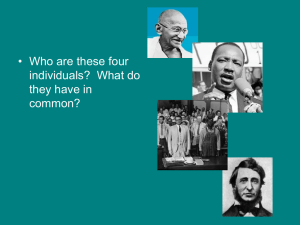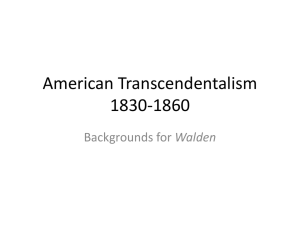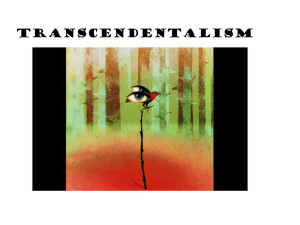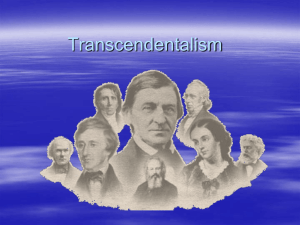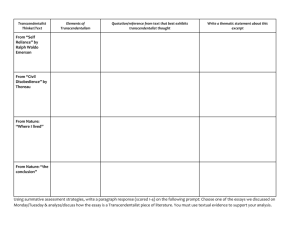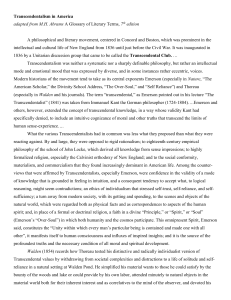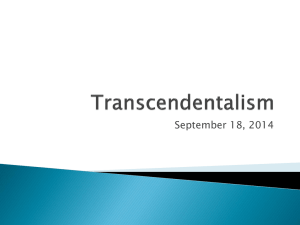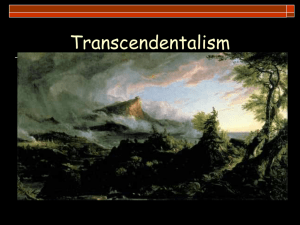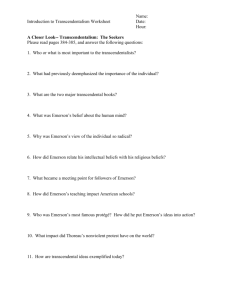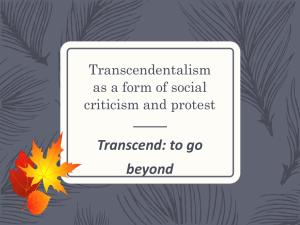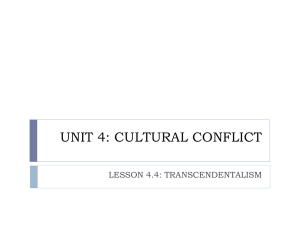Transcendentalism
advertisement
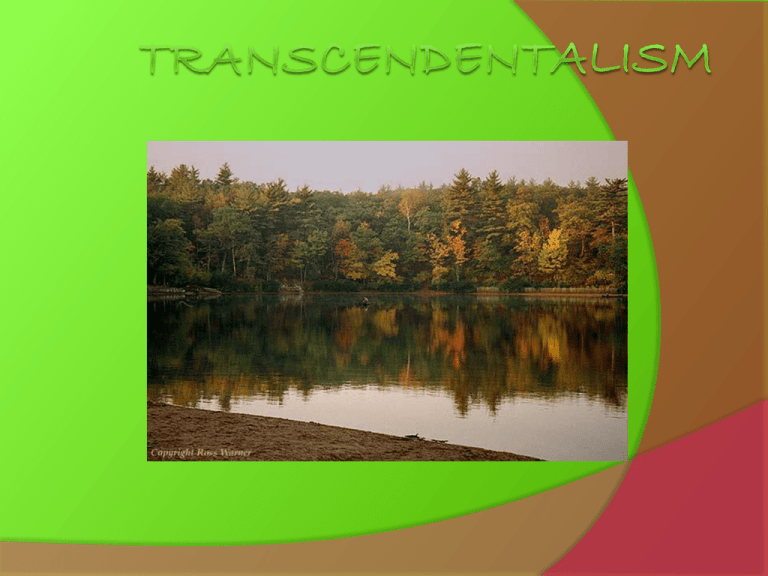
Why is it called Transcendentalism? Transcend means to exceed, surpass, or go beyond something. What did Transcendentalists Believe? Transcendentalists (followers of the movement) generally had a collection of very diverse ideas about literature, philosophy, religion, social reform, and the general state of American culture. Being a transcendentalist meant something different and unique for each person involved in the movement. What did Transcendentalists believe? Belief in the “Self” instead of looking for a higher power for guidance, such as God or the church Humans are essentially good Insight/Intuition (what you naturally believe) is more powerful and important than experience or logical thinking and reason All living things are connectedNature is an escape from the evils and materialism of society Basic Beliefs Self-Reliance/SelfConfidence Non-conformity/Rejection of the materialistic Importance of Nature Free Thought –Intuitive Where did it come from? Ralph Waldo Emerson (a famous transcendentalist) gave German philosopher Immanuel Kant credit for popularizing the term “transcendentalism in the 1700s” It began as a reform movement in the Unitarian church. 1830s - Emerson helped found the “Transcendental Club” It is not a religion-, it is a philosophy or form of spirituality. Historical Background American Revolution inspired many artists to create an “American Identity” that was separate from England. Reaction against some of the other movements of the time (Enlightenment, Age of Reason) Many aspects of “American” culture were changing Ex. Politics Industrialism=Expansion Technological Advances Who were some of the Transcendentalists? Ralph Waldo Emerson Henry David Thoreau Margaret Fuller Ralph Waldo Emerson 1803-1882 Unitarian minister Poet and essayist, and popular lecturer Wrote essay, Nature and Self-Reliance Founded the Transcendental Club in 1836-popularized the belief Considered the “Father” of Transcendentalism Supporter of abolitionism Henry David Thoreau 1817-1862 Schoolteacher, essayist, poet Most famous for Walden and Civil Disobedience Lived with the Emerson family from 1841-1843 Influenced environmental movementEnvironmentalist Supporter of abolitionism Margaret Fuller 1810-1850 Journalist, critic, women’s rights activist First editor of The Dial, a transcendental journal First female journalist to work on a major newspaper—The New York Tribune Taught at Alcott’s Temple School Shared Definition of Transcendentalism Discussion Questions How are you affected by nature? Do you find comfort in it? Do you reflect the moods of nature? What is the role of nature in your life? What is meant by an individual's spiritual side? How to you define it? Is there a connection between the individual's spirit and nature? If so, what is that connection? What does it mean to know something intuitively? For example, has a parent or a sibling ever known something was wrong with you without having talked with or seen you? What do we mean when we say "I just know it"? How do you demonstrate that you are an individual? Do you think independently of others or do you follow the crowd?
